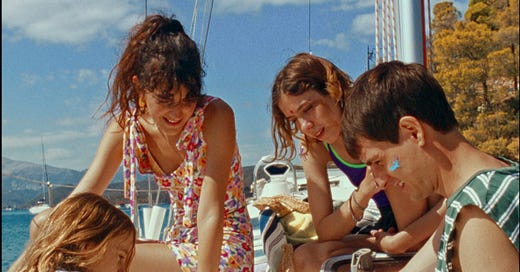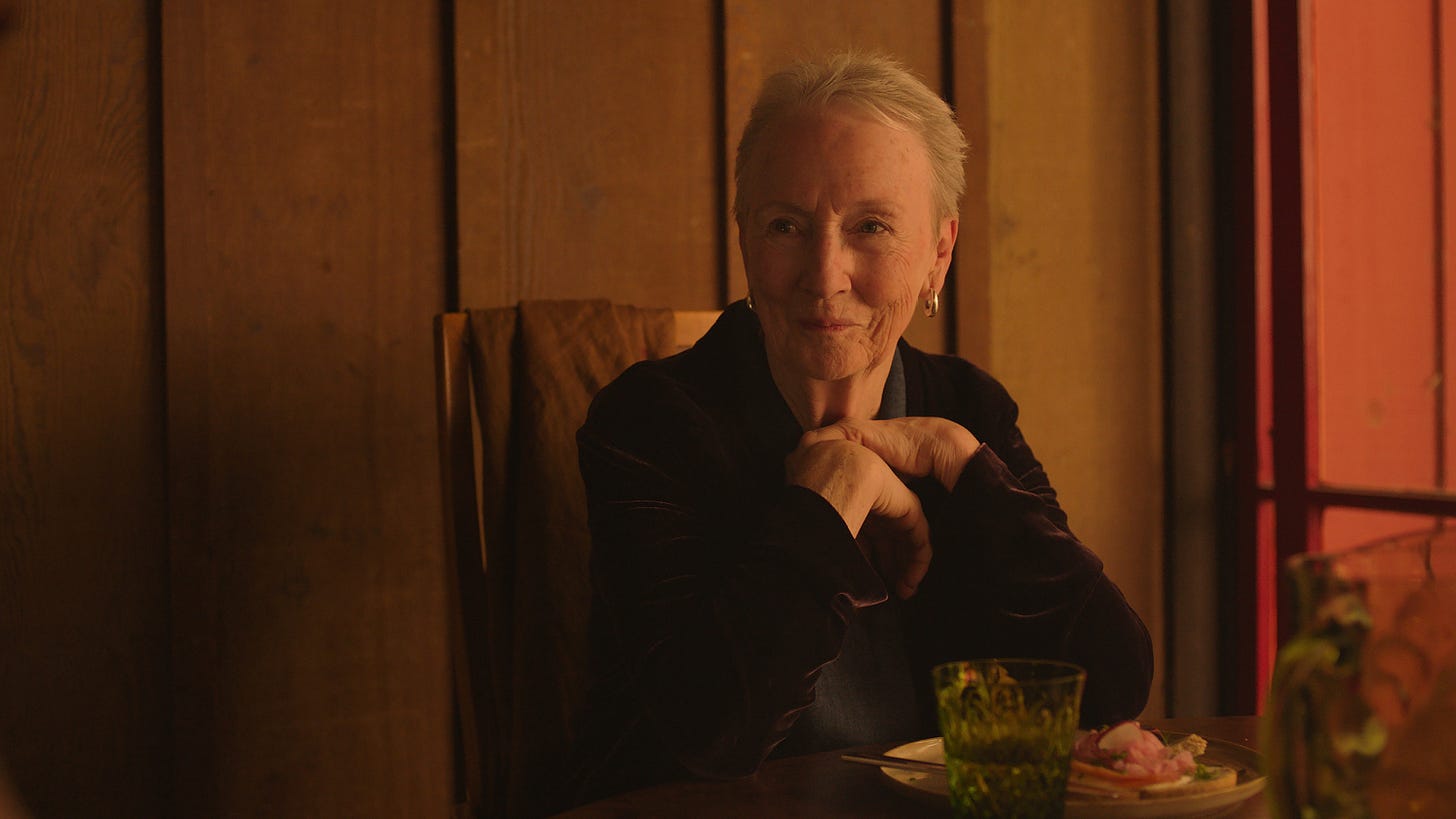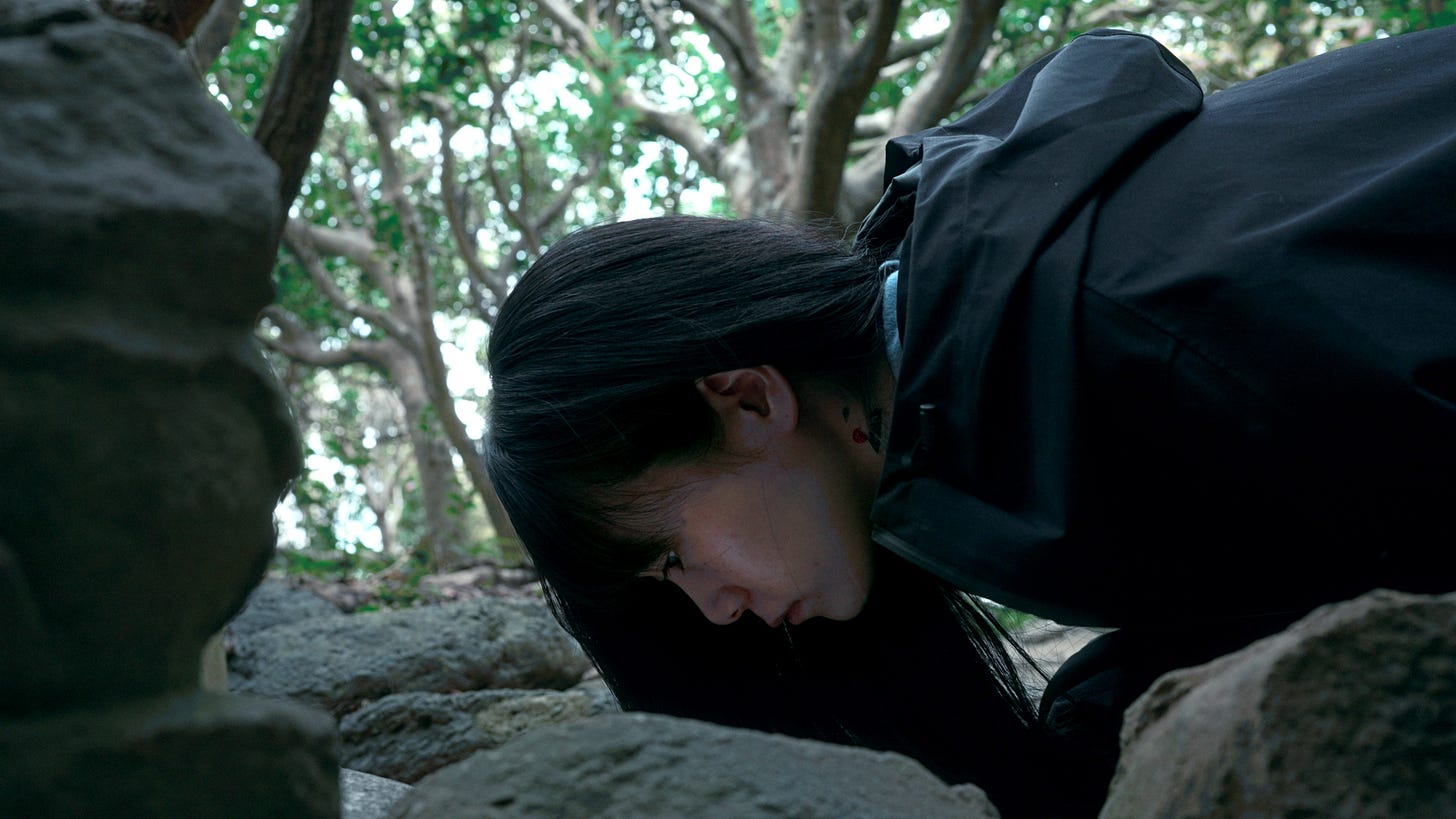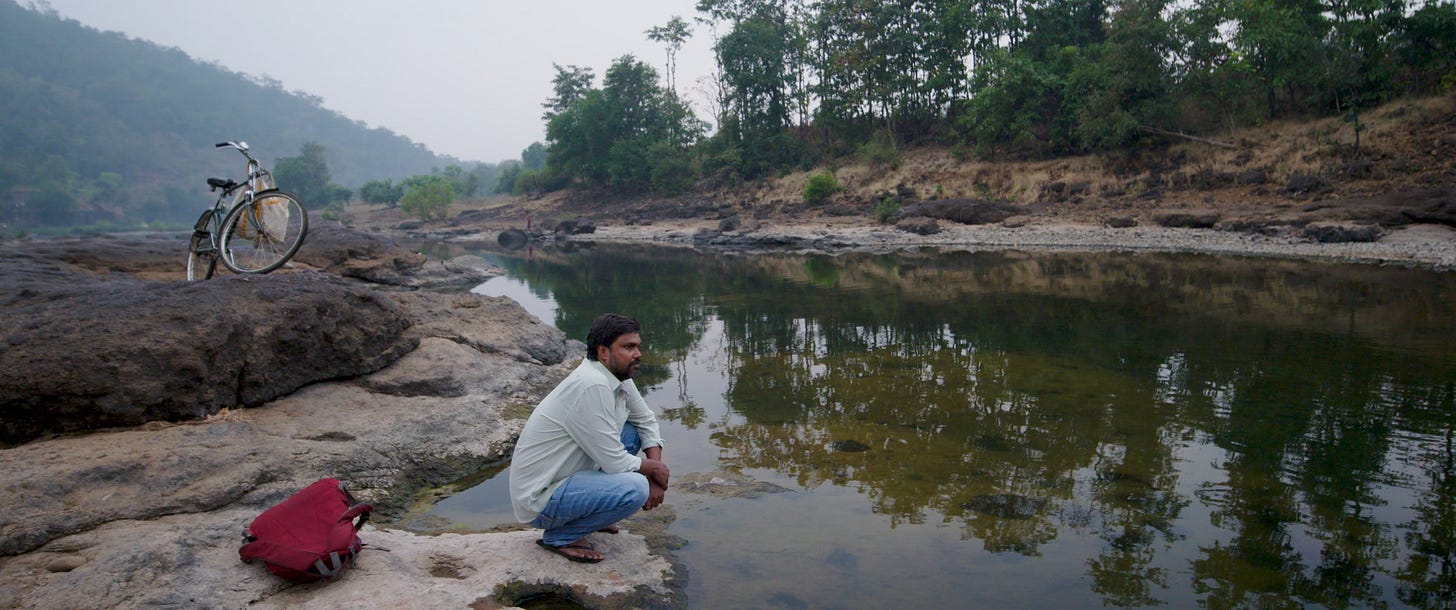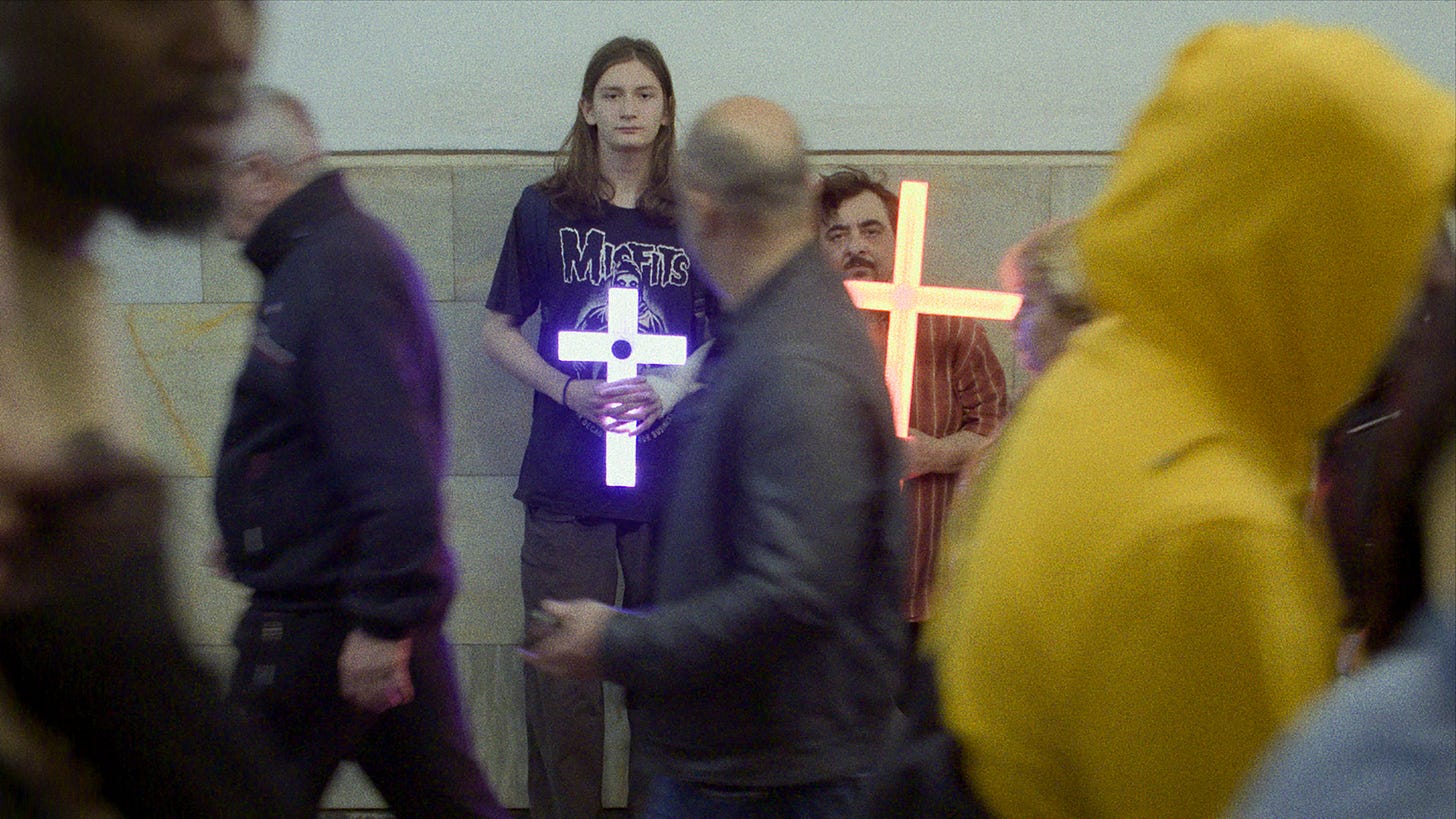New Directors, New Films
Five quick reviews from this year’s festival, which showcases emerging filmmakers from around the globe.
Tonight sees the kickoff of this year’s New Directors/New Films, a film festival jointly run by Film at Lincoln Center and MoMA. As the name suggests, the week-and-a-half-long program highlights early-career filmmakers whose unique cinematic voices come from across the globe, with a lineup drawing from five continents (sorry Aussies, maybe next year).
ND/NF is very near and dear to me: it opened my mind to an entire scene of international, arty movies. The first year I attended, I saw nineteen films in an effort to make the most of a $50 all-access student pass that I purchased despite having been out of school for a few years. (Maybe I shouldn’t admit that in print but they don’t offer it anymore.) A couple of those movies were pretty bad, some were just fine, but a lot of them were truly great. I was in the early stages of degenerate cinephilia and this festival accelerated that descent into madness.
I was able to screen a handful of this year’s selections in advance; here are brief reviews for five of them, including the Opening Night selection. I wasn’t a fan of all of them, but they may hold appeal to you. If you don’t live in New York, these films will eventually find their way to you, whether on the festival circuit or an eventual online release. Hoping to watch and write about several more before the end of the festival…
Familiar Touch
Screens April 2 & 4. Theatrical release June 20 via Music Box Films.
The best film I’ve seen of the New Directors lineup (so far) is a fitting selection for Opening Night. In her career as a choreographer and video artist, Sarah Friedland has long been attuned to the motion of bodies, with subtle movements conveying the littlest big things. Such attention translates well to her debut narrative feature, an unsparing yet compassionate portrait of a woman grappling with dementia. Newly moved into assisted living, Ruth (Kathleen Chalfant) may no longer recognize her son, but she can perfectly recite her recipe for borscht.
Working in collaboration with the residents and staff of a real facility in Pasadena, with some of them appearing as extras, Friedland employs an observational style reminiscent of a Frederick Wiseman documentary, with no dramatic plot arcs or music score. (The Father, this is not.) You still keenly feel Ruth’s loss of autonomy, particularly in no longer being able to cook her own meals. Her culinary instincts remain strong: at one point she commandeers the care center’s kitchen, deftly segmenting citrus and cubing honeydew melons for a fruit salad. (The influential cookbook author Mollie Katzen served as the production’s food consultant.)
Friendland also spotlights the responsibilities balanced by the home’s caregivers, particularly with a stressed yet gracious nurse (Carolyn Michelle) and a sardonically charming doctor (Andy McQueen). Chalfant disallows sentimentality from seeping into her leading performance, letting Ruth’s vivacious spirit shine through. But the most astonishing acting turn comes from H. Jon Benjamin, who plays her son. Known for voicing the cartoon spy Archer, the actor’s ironic deadpan seems to have softened with age into a wounded sensitivity. The conversations between him and Chalfant are the most outwardly heartbreaking scenes in an otherwise restrained film.
Kyuka Before Summer's End
Screens April 6 & 7. Currently seeking distribution.
It only took a couple years to feel Aftersun’s influence in other films. For Kostis Charamountanis’s bittersweet tale about the decaying relationship between a single father and his children, the director swaps out the Turkish resort setting of Aftersun for the sun-dappled Grecian coast of his own youth. Snakebit fisherman Babis (Simeon Tsakiris), stubbornly hewing to traditional methods, can’t seem to catch a break (or a sea bream, for that matter). Meanwhile, twin teens Elsa (Elsa Lekakou) and Konstantinos (Konstantinos Georgopoulos) unknowingly encounter their estranged birth mother (Elena Topalidou), setting off a chain of events that lead to a boiling over of seething resentment. While Kyuka employs many of Aftersun’s themes and devices — fuzzy VHS aesthetics, freeform narrative, summer vibes gone sour — it lacks the rigorous framework of that masterpiece. Charamountanis similarly breaks cinematic conventions, particularly in the climactic finale. But the intended impact is neutered by the lack of an underlying structure; too often it feels like the filmmaker is throwing in experimental interventions without fully formed logic behind them. Despite these flaws, the film is laced with retrospective anguish and personal history.
The Height of the Coconut Trees
Screens April 8 & 10. Currently seeking distribution.
Three strangers, each reckoning with different forms of loss, make brief contact in this often beguiling meditation on absence and memory. Sugamoto (Minami Ohba), unceremoniously dumped by her fiancé shortly before their honeymoon, follows the itinerary on her own, venturing to a remote cape in the south of Japan. In the wake of his girlfriend’s suicide at that same place, Rin (Soichiro Tanaka) remains there, hoping to catch a glimpse of her ghost. And after a family man loses his wedding ring at the beach, his wife disallows him from returning home without it. (This semi-surreal plot thread, which bookends the film, is the slightest one in terms of time but the most significant in impact.) Director Du Jie aims for profundity, and while the resulting film can be frustratingly opaque, certain moments linger in the mind. Call it a haunting of sorts.
Working as a cinematographer in the Chinese film industry, Du has worked on productions of every scale, including the wildly successful Detective Chinatown franchise. His independently financed directorial debut was made in Japan, where Du now lives, citing family reasons and censorship concerns in his native country, essentially swapping artistic limitations for budgetary constraints. Recalling the films of Eric Rohmer by way of Ryusuke Hamaguchi, The Height of the Coconut Trees is an expression of a longtime craftsman expressing his own voice for the first time.
CycleMahesh
Screens April 9 & 10. Currently seeking distribution.
At the onset of the COVID pandemic, migrant laborer Mahesh Jena bicycled 1,700 kilometers (1,056 miles) across India to reach his home village. (His Strava logs must have been crazy.) His trek from Maharashtra to Odisha went viral, but those fifteen minutes of fame didn’t improve his material circumstances. This remarkably unsentimental hybrid film by Suhel Banerjee playfully blurs the lines between biopic and documentary, with actors reenacting this very long bike ride while the real Mahesh lurks offscreen. Banerjee resists the narrative of noble peasantry and pastoral mysticism: an unemployed construction worker biked across the country with the promise of a farming job back home, and that’s all there was to it. Even making this movie seems to leave Mahesh with no discernible difference in his life. As suggested by its title, CycleMahesh is the story of a man, and a society, spinning in circles.
Holy Electricity
Screens April 12 & 13. Currently seeking distribution.
Another favorite of mine from New Directors is this whimsically sensitive portrait of ordinary people by Georgian filmmaker Tato Kotetishvili. The film has the trappings of European arthouse stoicism (stationary cameras, long takes, showcases of local customs) but it’s directed with flourishes of comedic panache, with a literal smash cut destroying initial impressions of dull solemnity. Twentysomething Gonga and his uncle Bart (Nika Gongadze and Nikolo Ghviniashvili, making their acting debuts) eke out a living by selling items salvaged from scrapyards. Upon discovering a suitcase containing rusty crosses, they refurbish them into neon crucifixes. With dreams of financial success, the enterprising duo sell their glowing creations from door to door. They encounter a friendly bunch of characters, from a lone woman living with dozens of cats to a gregarious gang of old men having a massive feast for lunch. These vignettes of the humans of Tbilisi are pleasant, and what grounds the film from floating away towards abject quirkiness are Gonga and Bart’s hardscrabble emotions. Details of those characters were taken from the actor’s own lives, namely the Gonga’s punk rock fandom and Bart’s gender identity. This slice of life, although abruptly cut short, is suffused with tranquil yearning and a subtly defiant recognition of the right to live authentically.
Haven’t seen yet, but of interest to me: Mad Bills to Pay, Fiume o morte!, Invention, Listen to the Voices, No Sleep Till, and the shorts programs. And I have a ticket to see Closing Night selection Lurker.


